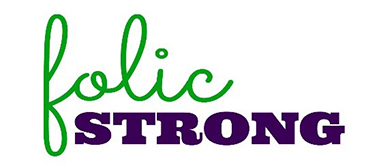Increasing Folic Acid Intake through Public Health Education (WI- Waisman Center UCEDD/LEND)
November 28, 2016

|
Folic acid is a crucial B vitamin that can prevent up to two thirds of cases of neural tube defects if taken daily before a woman becomes pregnant. Over the past year, faculty, staff and trainees at the Waisman Center UCEDD and the WI LEND program at the University of Wisconsin-Madison, have been working to increase awareness of the significant public health impacts of daily folic acid use. The current "Folic Strong" Initiative is a 3-pronged public health approach based on 1) policy changes that improve access to prenatal vitamins containing folic acid for all women of reproductive age, 2) healthcare provider education and 3) direct-to-consumer education to increase the number of women in Wisconsin who are taking vitamin supplements with folic acid.
As a part of the provider education component of this project, we are very excited to announce a brand new opportunity for continuing medical education credits! A webinar is now available for 1.0 AMA PRA Category 1 CreditTM, that conveys the importance of folic acid in preventing birth defects, describes provider ability to prescribe prenatal vitamins so that women may access them at a reduced or no cost, and offers strategies to overcome barriers that women may experience when advised to take daily supplements. Available at: http://www.ocpd.wisc.edu/FolicAcid.aspx
Other policy, provider and public education efforts have included the following:
- Changes to Medicaid policy in Wisconsin based on the requirements of the Affordable Care Act. Now women between the ages of 12-60 years can receive free prenatal vitamins containing folic acid with a prescription from their healthcare provider.
- Education for public health community care providers, including statewide WIC nutritionists as well as home visiting program supervisors, detailing the same information included in the webinar described above.
- A website dedicated to providing valuable information on folic acid for both the public and healthcare providers - http://www.folicstrong.org. The website includes educational materials, resources, and an opportunity for women to pledge to take daily folic acid. Weekly email reminders are offered, if desired.
- A social media campaign that includes a Facebook page (https://www.facebook.com/folicstrong), a Twitter page (https://twitter.com/folicstrongwi), and an Instagram presence using the hashtag #folicstrong.
The interdisciplinary Folic Strong Team includes genetic counselors, nutritionists/dietitians, nurses, and public health professionals. Folic Strong is a project made possible by the University of Wisconsin-Madison Waisman Center and the Wisconsin Genetics Systems Integration (GSI) Hub which are supported by Maternal and Child Health Title V Services Block Grant dollars to the Wisconsin Division of Public Health at the Department of Health Services.
Contact us at [email protected] for more information. Please help spread the word about this important public health campaign!







